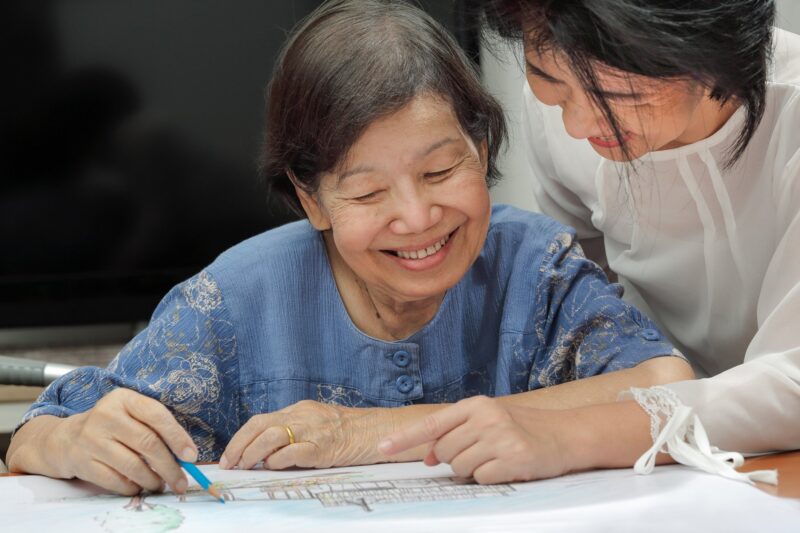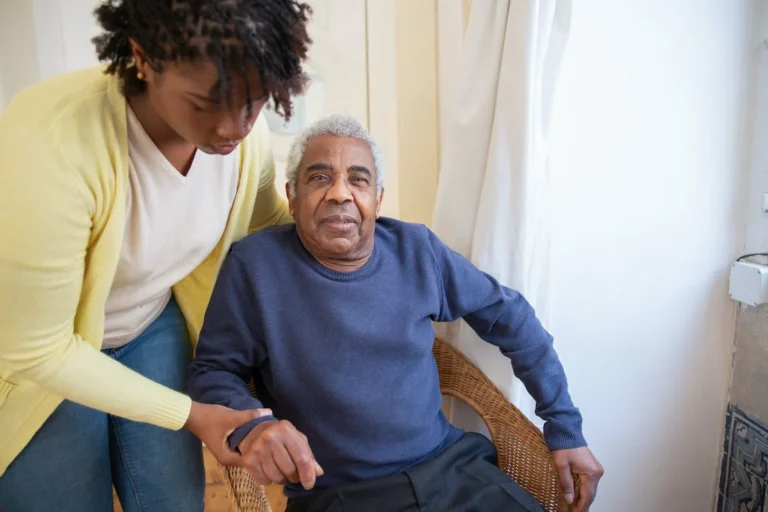Caring for a loved one with Alzheimer’s can be an overwhelming experience. It takes patience, understanding, and lots of love. Fortunately, there are ways for caregivers to make daily life easier for their loved ones. Here are six tips to help you improve the daily life of a person with Alzheimer’s.
Establish a Routine
Having a routine helps create a sense of security, which is essential for people with Alzheimer’s. Developing a daily schedule will help keep activities consistent and organized, making it easier for your loved one to understand what they should do at any given time. The structure will also provide consistency, which can help reduce stress levels and provide comfort.
Simplify Tasks

Simple tasks such as cleaning, bathing, dressing, or preparing meals can become challenging for those living with Alzheimer’s due to cognitive decline. Simplifying these activities will make each task manageable and less stressful.
For example, setting out clothes in advance or breaking down each step of activity into smaller tasks can significantly reduce the time needed to complete each task. Additionally, providing visual cues such as pictures or labels on items can help your loved one more quickly identify what needs to be done and how it should be done.
Consider Adult Care Homes
Adult care homes such as Longhouse provide 24-hour supervision, medical assistance, and other services that allow people with Alzheimer’s to live safely and comfortably in a home-like environment. They also provide opportunities for socialization and activities that can help reduce feelings of isolation or loneliness.
Furthermore, adult care homes often offer respite care which is temporary stays designed to give family caregivers some much-needed rest or time away from caring for their loved one at an affordable rate.
Create Cognitive Stimulation

Cognitive stimulation activities are designed to engage all five senses to maintain cognitive functioning, memory, and communication skills in those living with Alzheimer’s.
These activities include puzzles, sensory objects like musical instruments or fabric swatches, cards or board games, and even physical activities such as walking or light yoga exercises. Making sure these activities remain interesting by adding variety is key as well.
Maintain Social Connections
Social connections are important for everyone, especially those living with Alzheimer’s, because they often lose contact with family members or friends due to the effects of the disease on their ability to communicate effectively.
Finding ways for your loved one to stay connected with others is essential to maintain their mental health and overall well-being, so try introducing simple social activities such as attending a support group meeting or gathering regularly with family members over meals or outings while taking necessary safety precautions.
Be Patient

Caring for someone with Alzheimer’s requires patience and understanding as communication becomes increasingly difficult. Try not to take it personally if your loved one does not remember you or if they have difficulty expressing themselves clearly.
This is common among those living with the disease and should not be taken as an indication of how they perceive your relationship. Try not to rush things. Allow enough time for conversations and tasks, so your loved one does not become overwhelmed or frustrated by the situation.
Caregiving for someone diagnosed with Alzheimer’s disease presents unique challenges, but it doesn’t have to be overwhelming. By following these six tips, you can make daily life easier for you and your loved one alike while helping promote better overall mental health and well-being.

